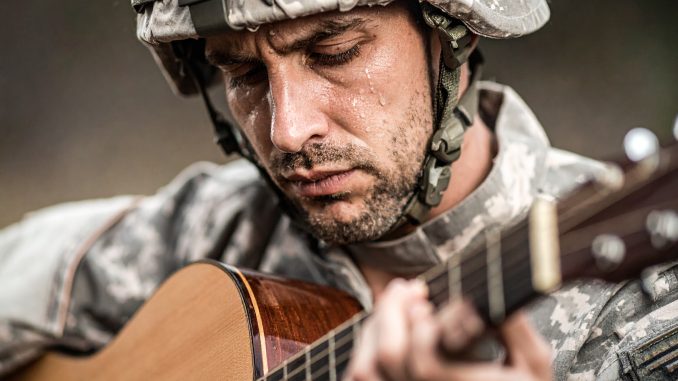
Protest Songs: America’s Anthem of Injustice and Hope
 Since the earliest days of the United States, protest songs have served as a soundtrack to the nation’s struggles against injustice. From the abolitionist hymns of the 19th century to the viral anthems of the Black Lives Matter era, these songs have galvanized movements, educated the public, and given voice to the voiceless. Their evolution mirrors the changing face of American activism, but their purpose remains constant: to rally, resist, and demand a better world.
Since the earliest days of the United States, protest songs have served as a soundtrack to the nation’s struggles against injustice. From the abolitionist hymns of the 19th century to the viral anthems of the Black Lives Matter era, these songs have galvanized movements, educated the public, and given voice to the voiceless. Their evolution mirrors the changing face of American activism, but their purpose remains constant: to rally, resist, and demand a better world.
Roots of Protest: From Abolition to Civil Rights
**Early protest songs** in America emerged from the fight against slavery and the quest for freedom. Spirituals sung by enslaved people often contained coded messages of resistance and hope. In the 19th century, abolitionist songs and Civil War-era anthems like “John Brown’s Body” and “Go Down, Moses” became rallying cries for justice.
The **20th century** saw protest songs become central to the labor movement and, later, the civil rights movement. Folk artists like Woody Guthrie (“This Land Is Your Land”) and Pete Seeger (“We Shall Overcome”) provided the soundtrack for marches and sit-ins, their music uniting diverse groups in the struggle for equality. The civil rights era also produced enduring anthems such as Sam Cooke’s “A Change Is Gonna Come,” Nina Simone’s “Mississippi Goddam,” and Curtis Mayfield’s “People Get Ready,” each addressing racial injustice and the longing for freedom.
Billie Holiday’s 1939 recording of “Strange Fruit,” describing the horrors of lynching in the American South, stands as one of the most haunting protest songs in history, shocking audiences into confronting the brutality of racism.
The Vietnam Era: Protest Goes Mainstream
The Vietnam War catalyzed a new wave of protest music, with artists across genres voicing opposition to war and social injustice. Songs like Buffalo Springfield’s “For What It’s Worth,” Creedence Clearwater Revival’s “Fortunate Son,” and Crosby, Stills, Nash & Young’s “Ohio” became synonymous with antiwar demonstrations and the counterculture movement. Joan Baez, Phil Ochs, and Marvin Gaye (“What’s Going On”) also contributed powerful songs that questioned government actions and called for peace.
Hip-Hop, Rock, and the Expanding Voice of Protest
As American society changed, so did the sound of protest. The 1980s and 1990s saw hip-hop and hard rock emerge as potent vehicles for dissent. Public Enemy’s “Fight the Power” became a rallying cry against systemic racism, while Rage Against the Machine’s “Killing in the Name” took aim at police brutality and government oppression. The tradition continued with artists like Bruce Springsteen (“American Skin (41 Shots)”), who addressed police violence and racial profiling.
Protest Songs in the 21st Century: The Digital and Social Media Age
 Today, protest songs are as vital as ever, amplified by social media and streaming platforms. The Black Lives Matter movement has inspired a new generation of artists to speak out. Kendrick Lamar’s “Alright” became an unofficial anthem of hope and resilience for BLM protests, while Childish Gambino’s “This Is America” offered a searing critique of gun violence and systemic racism[6][9]. Beyoncé’s “Formation” and “Black Parade” celebrate Black identity and resistance, and H.E.R.’s “I Can’t Breathe” directly addresses the killing of George Floyd and ongoing police brutality.
Today, protest songs are as vital as ever, amplified by social media and streaming platforms. The Black Lives Matter movement has inspired a new generation of artists to speak out. Kendrick Lamar’s “Alright” became an unofficial anthem of hope and resilience for BLM protests, while Childish Gambino’s “This Is America” offered a searing critique of gun violence and systemic racism[6][9]. Beyoncé’s “Formation” and “Black Parade” celebrate Black identity and resistance, and H.E.R.’s “I Can’t Breathe” directly addresses the killing of George Floyd and ongoing police brutality.
Lil Baby’s “The Bigger Picture,” released just weeks after George Floyd’s death, quickly became a defining song of the 2020 protests, blending personal testimony with calls for justice. Other recent protest songs include The Chicks’ “March, March,” Macklemore’s “Hind’s Hall,” and Chris Pierce’s “American Silence,” each reflecting the urgency and diversity of contemporary activism.
The Power and Legacy of Protest Songs
Protest songs have always been more than mere entertainment. They inform, instruct, and recruit, fostering unity among those fighting for justice. Singing together at rallies transforms fear into resolve, turning individuals into a cohesive force that cannot be ignored. These songs create a shared language and history, connecting generations of activists and ensuring that the stories of struggle and hope are never forgotten.
As America continues to grapple with old and new forms of injustice, protest songs remain a vital part of the nation’s conscience—reminding us that the fight for justice is ongoing, and that music will always be there to inspire, comfort, and lead the way


Be the first to comment